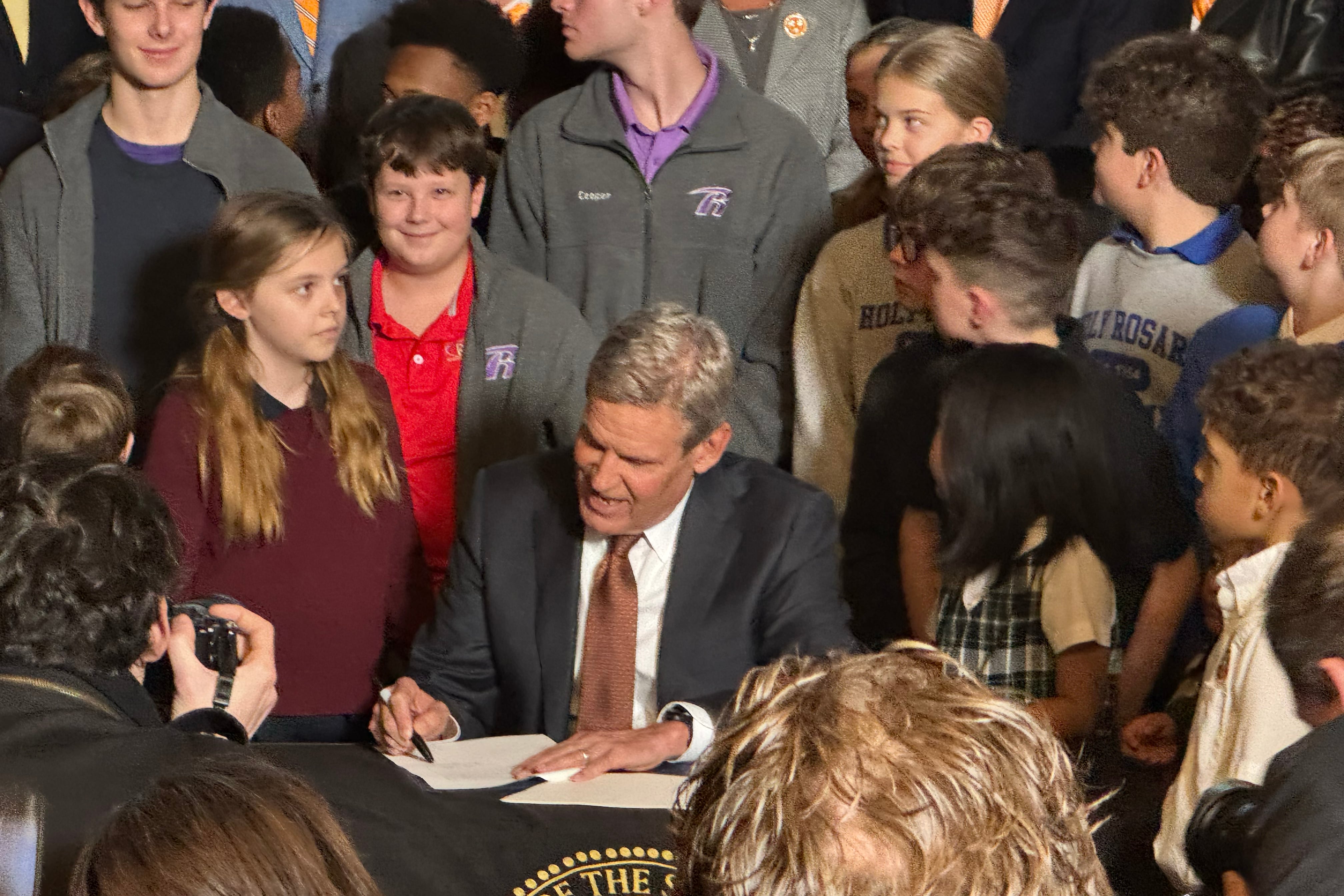Sign up for Chalkbeat Tennessee’s free newsletter to keep up with statewide education policy and Memphis-Shelby County Schools.
Months after Tennessee launched its first statewide voucher program, the Tennessee Department of Education won’t say how many students are using it to attend private school.
The department has declined to release basic information on enrollment, delayed public records requests, and blocked attempts by at least one lawmaker to gather data on the program approved by Republican lawmakers in January.
The lack of information has shrouded the rollout of Gov. Bill Lee’s signature voucher program, which is expected to funnel more than $146 million of taxpayer money to private schools, and makes it difficult to determine whether the quick implementation of the program is working as intended.
It’s also the latest transparency issue for the department, which drew criticism earlier this summer after Chalkbeat Tennessee reporting revealed Tennessee would not explicitly track how many vouchers will go to students already attending private schools.
Tennessee launched the universal voucher program application in May with significant fanfare. Lee, in a joint statement with the department, touted a “remarkable response” to the program, citing more than 33,000 applications submitted within hours of launch.
But since May, the department has refused to release further data. The education department did not respond to multiple Chalkbeat Tennessee requests this summer for specific numbers regarding acceptances, denials, and applications submitted in the “income-limited” category of the program.
Commissioner Lizzette Reynolds told reporters in July that additional data on Education Freedom Scholarships enrollment would be released in August. None was published.
On Tuesday, the department again declined to answer specific Chalkbeat Tennessee questions, including how many students were enrolled in the program as of Sept. 1 and how many are currently waitlisted.
A department spokesperson said additional information would be provided in “the coming days” and again pointed to numbers on applications, rather than data on actual enrollment in the program.
“The department looks forward to sharing data from the Education Freedom Scholarship (EFS) program for the 2025-26 school year in the coming days,” said Maggie Hannan, communications director for the TDOE. “It’s important to note that with more than 42,000 applications, approximately 50 percent were submitted by families with a qualified income. This remarkably strong response demonstrates what Gov. Lee has known all along: Tennessee parents want choices when it comes to their child’s education, regardless of ZIP code or income level.”
The department has delayed fulfilling Chalkbeat Tennessee records requests filed in early August, which are still outstanding. It also knocked down data requests filed by Rep. Caleb Hemmer earlier this summer.
Hemmer, a Nashville Democrat, said last week he is considering filing a lawsuit against the department to push for more transparency.
“It’s a continual theme of not following the law and having to take extreme steps to correct that. It’s so frustrating,” Hemmer said. “Our kids deserve better, Tennesseans deserve better. It overshadows the good work that the department and department employees do for our kids.”
The department has denied Hemmer’s request for residency data of student applicants. Hemmer said he filed a records request after learning the department was not collecting data on whether applicants already attended a private school when applying for the voucher.
“After getting the application and looking at it, I was surprised to learn that they left out this key piece of information,” Hemmer said. “So, I wanted to see for myself what the data looked like. I wanted to see how many of my constituents applied.”
The department has cited student privacy laws, though Hemmer believes the data could be released as “directory” data.
“Our education attorney’s review found that they had a different opinion of what should and shouldn’t be public,” Hemmer said.
Deborah Fisher, executive director for the Tennessee Coalition for Open Government, said that while it’s not unheard of for a state lawmaker to “tangle” with a state agency to get information, it is not often that a lawmaker sues for the information.
But Fisher said the months of silence from the education department is “unusual.”
“To get just radio silence on the governor’s signature program is unusual,” Fisher said. “You should be able to get basic government data. This is government money, this is taxpayer money. You should be able to get basic information.”
Melissa Brown is the bureau chief for Chalkbeat Tennessee. Contact Melissa at mbrown@chalkbeat.org.






